This year’s batch of Student Academy Award nominees highlights a diverse, colorful blending of genres from filmmakers of all walks of life. In this interview series, Film Editor Sergio Zaciu sat down with all seven finalists of 2020’s Narrative – Domestic section, hoping to learn more about their personal backstories, what brought them to the director’s chair, how they made their respective films, and what exciting prospects await them next in their careers.
Before jumping into SWEET POTATOES, I’d love to know a few things about you. What did you do before coming to USC’s School of Cinematic Arts? And what drove you towards filmmaking?
Rommel Villa Barriga: I was born and raised in Bolivia. My interest in storytelling started when I was a kid, creating fictional stories about my family having superpowers, fighting poverty and corruption in a world populated by magical dinosaurs and flying llamas. I grew up writing/directing award-winning plays based on social issues I learned at PASCAR, a social organization that educates young adults in HIV/AIDS misconceptions, and LGBTQ+ advocacy in conservative societies. In high school, I served in the military for a year in Bolivia, which was one of the most traumatizing experiences in my life due to the sexist and discriminatory environment. Unfortunately, there are not many schools in Bolivia to study film, so since I also had a deep interest in technology, I studied Systems Engineering. Once I finished my degree, I got a scholarship to come to the U.S. for an exchange program at the University of Saint Francis in Joliet, IL, where I took film/TV production courses, which I loved, so I came back to Bolivia determined to do a masters program in film production. After working for a couple of years saving up money, I applied to USC, and here I am.
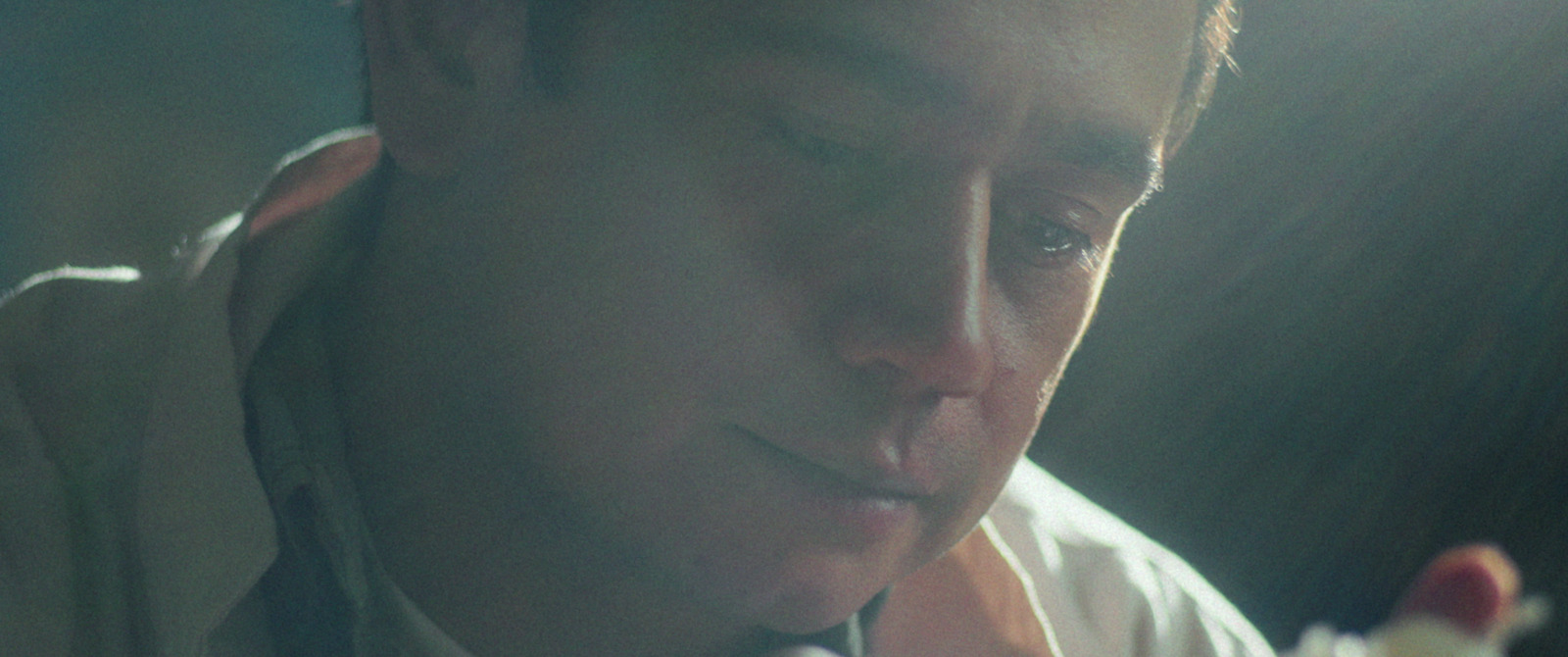
The story behind SWEET POTATOES is so powerful. After I noticed that the film was a Sloan Grant recipient, my first question was whether you found the story because you wanted to submit a pitch to the grant, or if this was a story that you’ve wanted to film for many years and the grant simply made this possible?
RVB: Five years ago when I came to the U.S. to film school, my Uber driver asked me where I was from and when I told him I’m from Bolivia, he asked me if I had cocaine in my backpack. After learning about all the stereotypes people have about Latinx communities, I promised myself to make films that showed the immense contribution of Latinx innovators to the world. So after doing some research, I found Luis Miramontes and immediately connected with his life story. I tracked down his family in Mexico and wrote the script, but struggled getting the funding to make it happen. Years later after hearing about the Sloan Grant, I made a pitch package and submitted SWEET POTATOES to it and fortunately got it.
So a recurring theme among this year’s batch of finalists are directors who decided to film in their home country. So my first question to you is related to the process of taking an official USC production and shooting in Mexico: What’s that like? Logistically, creatively, etc. What kind of doors does it open? What doors does it close?
RVB: It was an enormous challenge. First of all, I have to give a big shout out to Andrea Porras, one of SWEET POTATOES’ producers and the reason why we were able to make the production happen. Since I’m from Bolivia, I wanted to make sure I was able to work closely with Latinx producers: Damon Laguna—half Argentinian—and Andrea—from Mexico—in order to make the project as genuine as possible. Andrea had filmed many projects in Mexico before, and she was key when connecting with the casting director, the location managers, equipment, crew in Mexico, and more. It takes a lot of planning, from getting flights that need to be reimbursed, to remotely looking for actors, kids, babies, and extras in Mexico who could be part of the film, to figuring out how to safely travel with expensive equipment from LA to Durango, Mexico. When we first arrived in Durango for location scouting, it immediately felt right. We found all the locations we needed, the locals were kind, welcoming, and willing to help with anything we needed. Here in LA if you want to shoot in a chemistry laboratory you’d better have a big budget to pay for it. In Mexico, people were excited to have us, so the location expenses were significantly lower. Rehearsing with actors, going to the locations, and having tech scouts were limited since all the department heads were based in LA—I only had a few days before the production to rehearse with the actors while working on shot-lists, wardrobe tests, casting the kids and the baby, and more—and on top of that, we had the chance to collaborate with an LA/Mexico crew and with actors that were fully cast in Mexico. Such an opportunity is priceless.
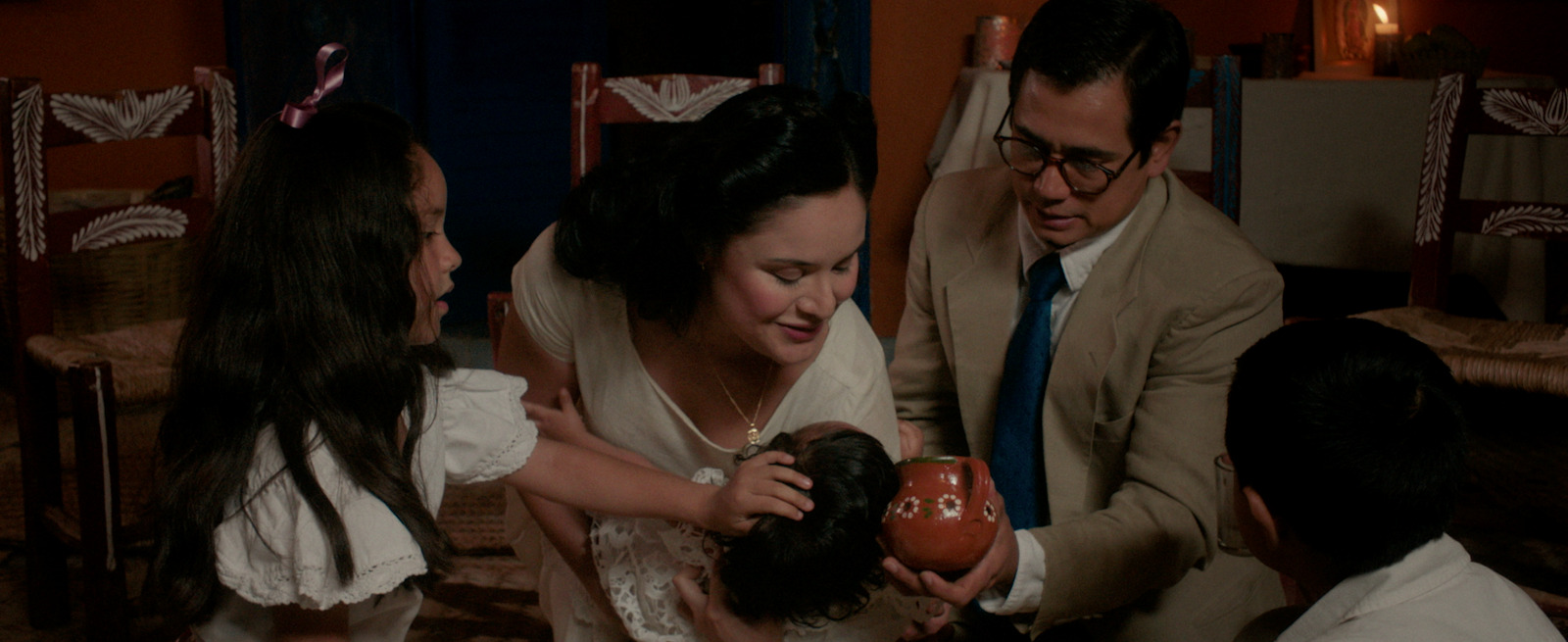
I imagine the most stressful element of shooting miles away from your school is that you can’t just come back for reshoots in case something goes wrong in post-production. How do you try and mediate this issue?
RVB: You plan to shoot every single scene you have, trying to get all the setups you have planned for each day. We scheduled the production so that we had a day break right in the middle of production, which would be used to look at the dailies, evaluate the progress of the production so far, get some rest, and go back to the production stronger than ever. Also, we prioritized the consistency of locations to shoot at, meaning that the first few days we only shot at the church, the following days only at the lab, etc., so that if we couldn’t finish shooting what we needed on the first day, we would plan to get those pickups the following day since we were at the same location. Preparation is everything.
I imagine your crew was not entirely composed of Mexicans. Maybe it was even some people’s first time in Mexico? What was this process like? Where did everyone sleep? How big was the team? And perhaps most importantly, how did you assemble a team that you knew could weather such a demanding production?
RVB: We hired all the department heads here in Los Angeles. We went through the regular interview/lookbook process. During the interviews, we made it clear that there was a big possibility to film in Mexico, and if anything, there was a lot of excitement coming from every person we interviewed. After all, who would want to say no to paid flights, food, and stay in a beautiful city in la hermosa Mexico? I was a Teaching Assistant for many classes at USC, so I was able to meet a lot of talented people that I wanted to collaborate with, so it was a matter of connection to the story, vision of the film, and work ethic that helped decide who we wanted to hire. At the end of the day, we ended up assembling a strong team of eager filmmakers. We all stayed at a hotel near downtown Durango. Our team from Los Angeles was about 10 people, the rest of the producers and crew from Mexico was about 15 people, and the cast was about five-to-10 people depending on whether we had the kids on set or not. So that makes about 30 people on set on a regular day. When we had background actors, though, that number would go up to 50 or more.
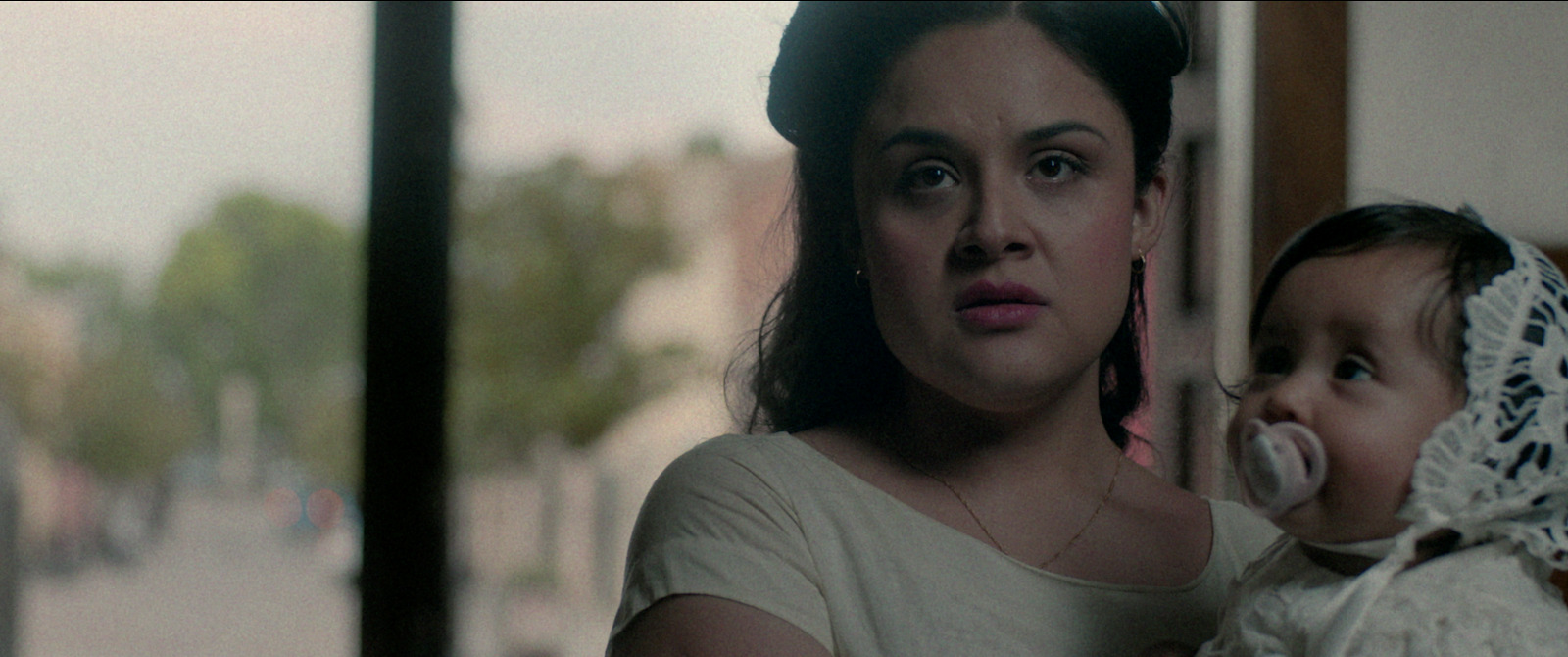
This brings me to pre-production. How did you cast this movie? I imagine you must have had a local casting director? Was the film fully cast by the time you flew to Mexico? When was the first time that you met your actors?
RVB: Elvira Richards was our casting director in Mexico City. She held auditions there with the sides we provided, and she shared the videos with us to set up callbacks. She is the most professional CD I’ve worked with! The roles of Lilia, Luis, Alfonso, Carl, and Dr. Rosenkranz were cast by the time we flew to Mexico. I had talked on the phone with them a few times to discuss their characters, the story, and their looks before going to Mexico. I met them in person a few days before production. We went to Durango a week-and-a-half before production to have time to do all the prep work and to audition and cast the children and the rest of the roles needed.
Did you bring equipment from Los Angeles to Mexico or did you rent everything locally?
RVB: We brought the camera and sound equipment to Mexico. We got the grip/electric equipment and everything else in Durango.
Were there any big surprises during the production of the film, positive or negative?
RVB: I don’t even know where to begin! It was very, VERY HOT down in Durango. Ironically, about two-to-three days towards the end of the production it rained and even hailed. Of course we had planned to shoot exterior scenes on those days…. Of course we had. But let me tell you something, there’s nothing more beautiful than sheltering cast and crew underneath a ceiling, watching the hail hit the grass in silence… it’s a cathartic experience. A great surprise was being able to find a working bus from the 1950s that we could use in the production to enhance the production value.
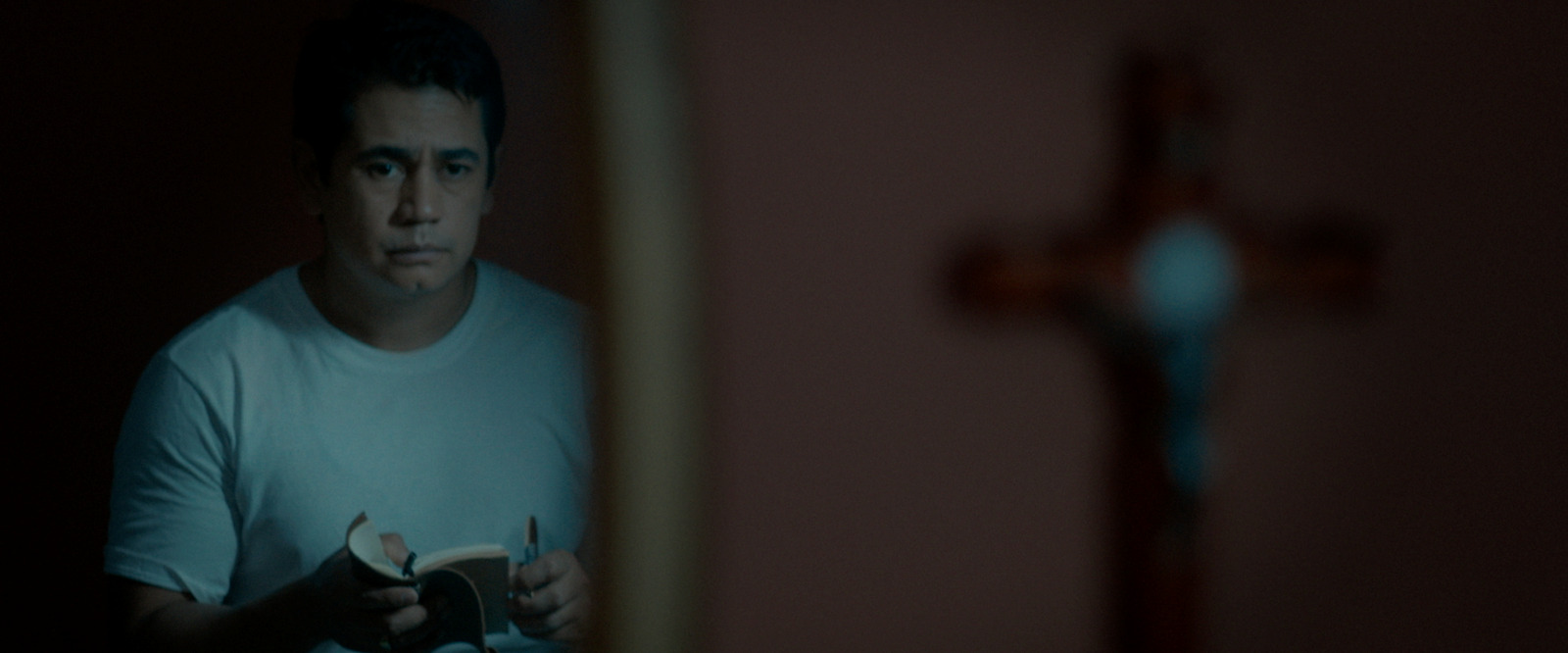
I always feel like communities outside of L.A. and New York are more hospitable towards film crews. Would you agree?
RVB: I think it depends on where you go in L.A. and New York. Here in L.A., I’ve found helpful and kind location owners that allowed us to film for reasonable prices as long as we needed in exchange for supporting their businesses, but I’ve also encountered many unpleasant situations where if you don’t have a lot of money they won’t even listen to what you have to say. One thing I’d like to point out, though, is that I was moved by the amount of love and support from the people in Durango without expecting anything in exchange. You can tell the love they have for filmmaking especially when the story is about a Latinx figure. I remember our Mexican crew members telling me that they were happy and excited to film overnight if needed. Not that I would do that to us, but hearing such commitment was encouraging and beautiful. It felt like people cared about the project on a personal level, rather than just seeing it as a regular job. I appreciate and admire such passion.
Did you use any pre-existing films as visual references to guide you through the production of SWEET POTATOES?
RVB: Absolutely. Luis Buñuel’s LOS OLVIDADOS, Claudia Llosa’s LA TETA ASUSTADA, James Marsh’s THE THEORY OF EVERYTHING, Damien Chazelle’s FIRST MAN, and Robert Eggers’ THE WITCH were among the biggest visual references for the film.
If you could go back in time and give yourself advice before flying to Mexico to make this movie, what would you say?
RVB: I would tell myself to travel to Mexico earlier to learn more about the culture, traditions, spirituality, routines, and life in general that could serve as inspiration to elevate the story. I wish I had forced myself to go to Mexico half a year before production to experience the city and countryside, and to immerse myself more with the life there. We went location scouting a couple of months before production, and it was necessary and helpful, and I’m beyond proud of the final product. I just wish I had had more time to experience such a beautiful country more.

Obviously the film has a festival run coming up, and with COVID-19 raining on everyone’s parade, the future is pretty unpredictable, but do you have any plans for the future that you would like to share with us?
RVB: I loved working on this film much more than I imagined. From researching the science behind the invention, to talking to Luis Miramontes’ family about his work and legacy, to the actual production of the film, there’s something magical about telling stories based on real life events. I think SWEET POTATOES is the first chapter of many more to come. There are more stories out there about underrepresented people who had humble upbringings but their contribution to the world was priceless, so we’re currently working on compiling those characters to continue writing the following chapters. There’s nothing concrete yet, but this pandemic has been a source of inspiration for sure, so you’ll be hearing from us in regards to that project soon! I’m also finishing up a feature script that takes place in Bolivia and the U.S. This is another story that is close to my heart. It includes love, heartbreak, violations of privacy, the benefits and disadvantages of technology, self-identity, and closure… I know, it’s all complicated but it’ll make sense once it’s done, I promise. My hope is to develop and produce this project as my first feature film. SWEET POTATOES is currently on the festival run, we hope to hear back from important festivals very soon!
Catch SWEET POTATOES on the festival circuit and keep your eyes peeled for more of Rommel’s work in the future!








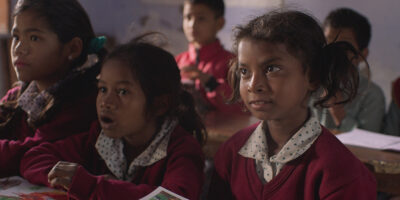
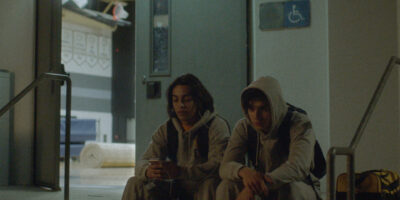
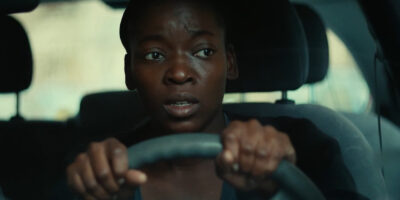



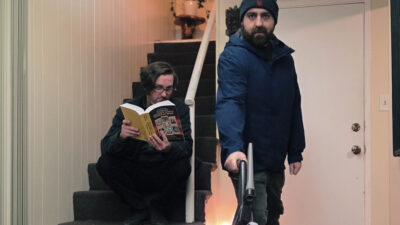

Comments